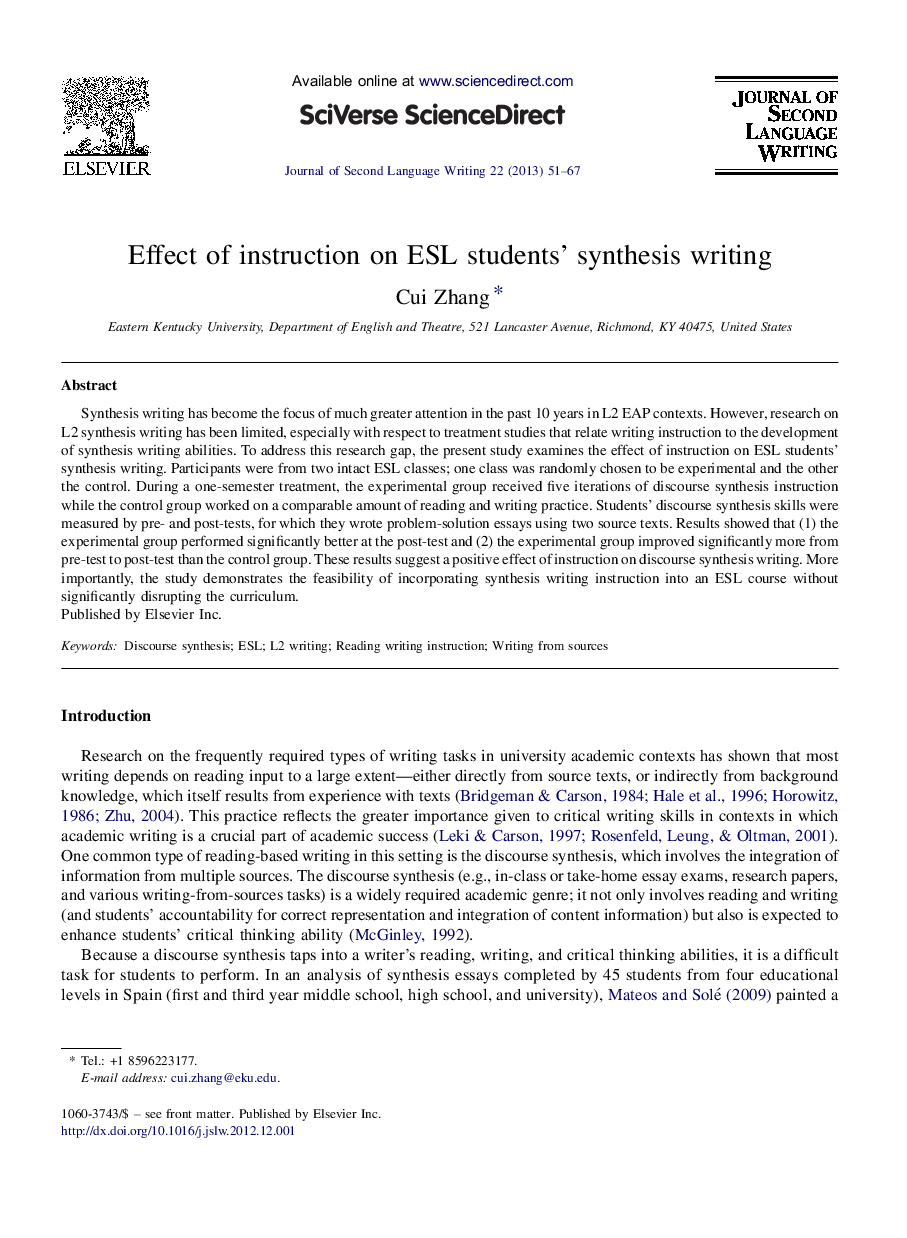| Article ID | Journal | Published Year | Pages | File Type |
|---|---|---|---|---|
| 364066 | Journal of Second Language Writing | 2013 | 17 Pages |
Synthesis writing has become the focus of much greater attention in the past 10 years in L2 EAP contexts. However, research on L2 synthesis writing has been limited, especially with respect to treatment studies that relate writing instruction to the development of synthesis writing abilities. To address this research gap, the present study examines the effect of instruction on ESL students’ synthesis writing. Participants were from two intact ESL classes; one class was randomly chosen to be experimental and the other the control. During a one-semester treatment, the experimental group received five iterations of discourse synthesis instruction while the control group worked on a comparable amount of reading and writing practice. Students’ discourse synthesis skills were measured by pre- and post-tests, for which they wrote problem-solution essays using two source texts. Results showed that (1) the experimental group performed significantly better at the post-test and (2) the experimental group improved significantly more from pre-test to post-test than the control group. These results suggest a positive effect of instruction on discourse synthesis writing. More importantly, the study demonstrates the feasibility of incorporating synthesis writing instruction into an ESL course without significantly disrupting the curriculum.
► The study involves high intermediate level ESL students from two intact classes. ► Students in the experimental group received instruction in, and practiced, synthesis writing. ► The experimental group outperformed the control group in synthesis writing at post-test. ► Challenging concepts can be integrated into EAP curriculum for lower level students. ► It is important for the teacher to scaffold and model the synthesis writing process in instruction.
